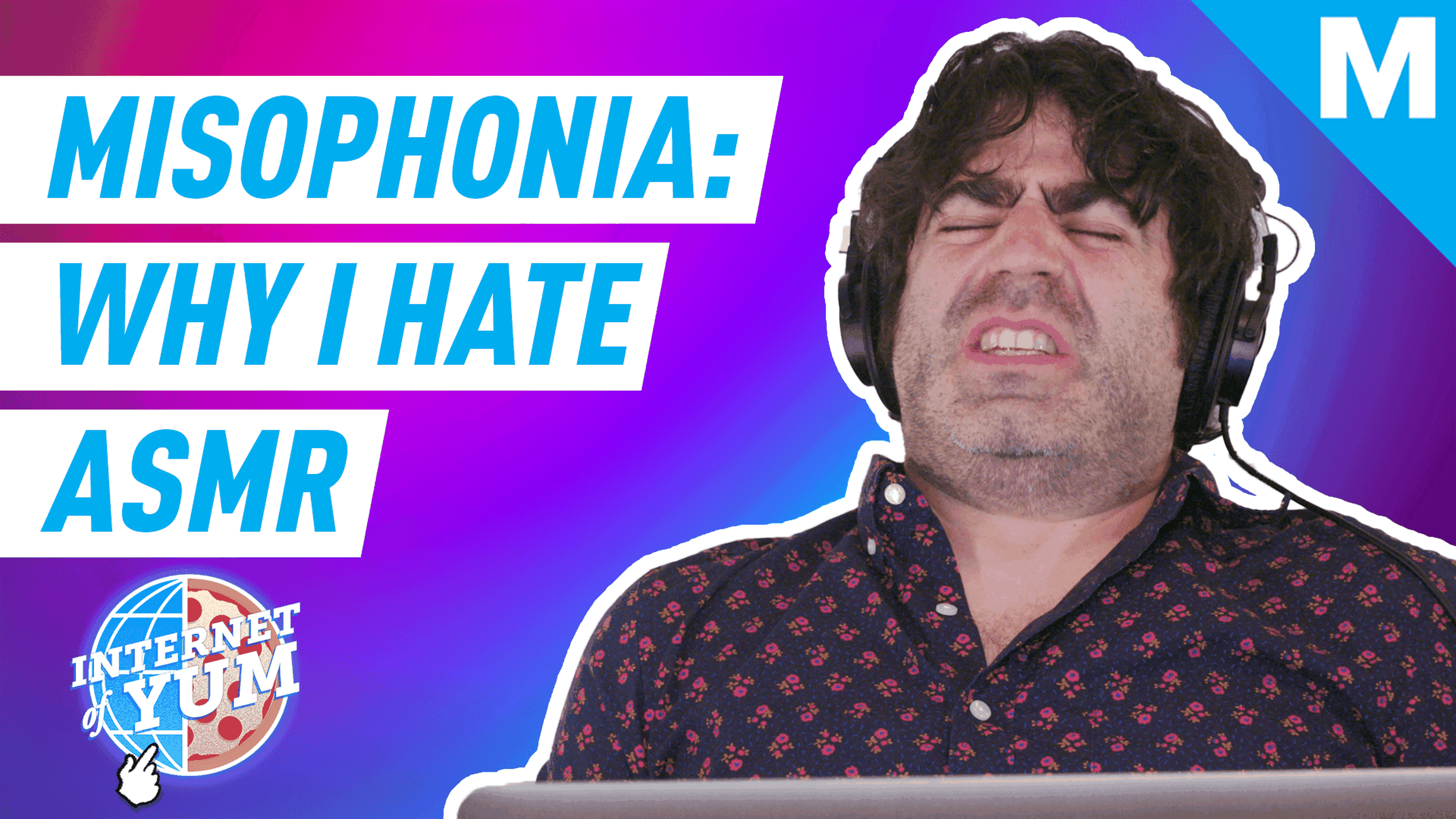
Internet of Yum digs into all the things that make us drool while we’re checking our feeds.
Slurping. Chewing. Smacking lips.
The plethora of YouTube videos showing people eating, from Hot Ones to Mukbang to Food ASMR, can be excruciating for people who have misophonia, or a sensitivity to sound that means that certain noises others may not even notice are “highly disturbing” for them.
Studies into misophonia are sparse, and it has yet to be formally classified as a psychiatric disorder, but eating sounds are among the most common triggers. According to the Misophonia Association, there is no scientifically proven cure for misophonia.
If these noises bug you, however, there are ways to cope. Jaelline Jaffe, a licensed marriage and family therapist who specializes in counseling people with sound sensitivity issues such as tinnitus (when you hear ringing in your ears) and misophonia, offers a few things you can do.
1. Peel back the onion
Jaffe uses an onion as a symbol. At the core is, “I hate the sound of people eating soup,” but there are other layers surrounding that thought. One may also be thinking, “They shouldn’t eat like that,” or “They’re obnoxious,” or “Didn’t anybody teach you how to eat?” Each of those reactions is its own layer. She suggests peeling those back to expose the core.
“If you could get rid of all the rest of those layers, it gives you less to have to deal with,” she said. “You’re just stuck with, ‘I don’t like that sound,’ period. End of subject. Shift.”
2. Reframe
People — especially kids, Jaffe said — often think that if someone else would just stop doing the bothersome thing then they’d be fine. They think that other person is the problem.
What helps is reframing your perspective. “The problem is not that sound that person is making,” Jaffe suggested. “The problem is that sound when it gets into your neurological system and the way that your system reacts to that sound…which is a really hard thing to grasp.”
What you think, do, and feel are all connected, so adjusting one of those will effect the others, she noted.
“If you can change what you think, like, ‘That person is disgusting,’ if you changed that to, ‘That person is doing it the way that they’re doing it, and it’s just not the way that I happen to like it,’ then that’s helpful. People can learn ways to dial it down.”
It may also help to think of your misophonia as a symbol of your strong hearing.
“One of the things I try to help people develop is a sense of, how can I use my superpower here?”Jaffe said. “I hear things that other people can’t hear. Where else in the world around me can I use that?”
3. Mimic the sound you’re hearing
For some people, mimicking the disruptive sound may reduce their reaction to it. Hearing the disturbing sound can make you feel threatened or feel like your life is in danger, Jaffe said. It can pump you full of adrenaline, she adds, and you need to expel it somehow.
“It could be that mimicking of the sound is a way to dispel that energy level…burst the bubble, in some way, and come back down to a more normal state.”
4. Talk to people you trust
Deciding who you should share your misophonia with is an important step.
“It’s hard to live with people and have them not understand that you have a reaction to certain things,” Jaffe said. “If it’s something where they can accommodate you to some degree, like, ‘don’t chew gum,’ then that’s a good thing for them to know so they’re not adding to your distress. If you had a peanut allergy, you’d want the people around you to know that so they’re not eating peanuts when you’re there.”
She suggests describing your reactions as an allergy. Tell the trusted person that certain sounds are painful for you to hear and ask for their support.
“Think of it as, ‘I am allergic to the sound of whatever; if there’s a way you could help me out by not making that sound, if you could help me out I’d appreciate that,'” Jaffe said.
If you still need help with your misophonia symptoms, the Misophonia Association also has resources.
